Interview: John Wolskel
January 9, 2021 · 1 comment
By Andrew Osmond.
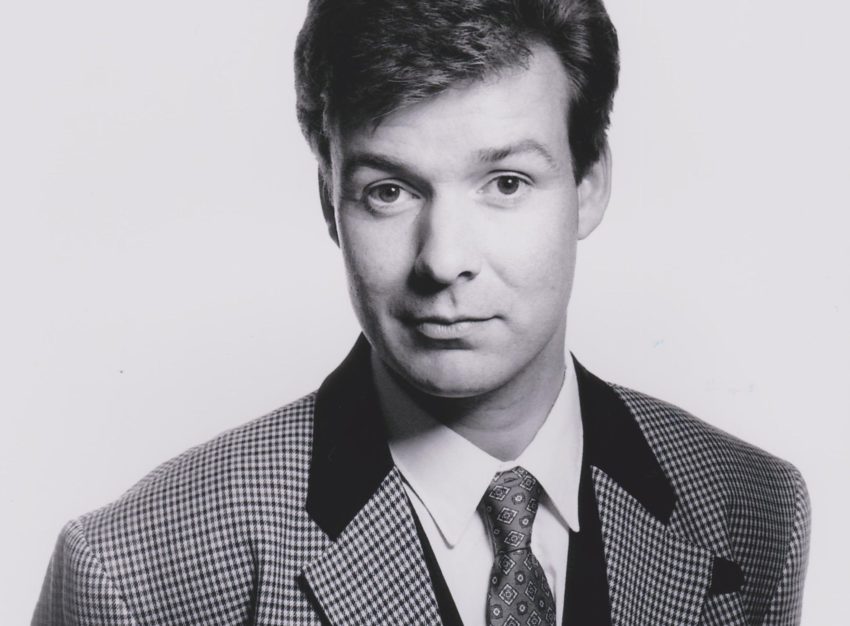
The decidedly colourful English dub for Cyber City Oedo 808 was adapted by John Wolskel. He adapted several other anime titles for Manga Entertainment as well, often “in-your-face” actioners where Wolskel was encouraged to make the dialogue as edgy (and sweary) as possible. In this interview with Andrew Osmond, Wolskel remembers how a vampiric motorbike led him into working for Manga Entertainment, and into the most lurid excesses of anime…
How did you first become involved with Manga Entertainment?
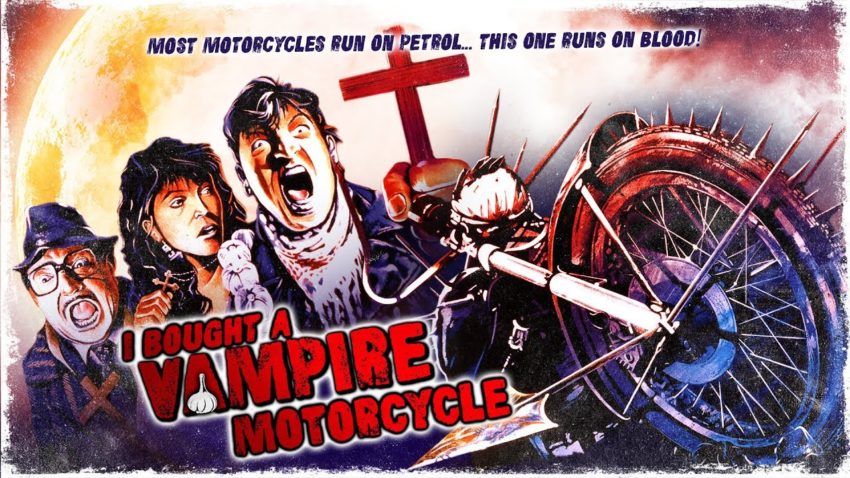
I think it might have been in 1994, right at the end. At that time, the dubbing operations for Manga Entertainment was in Worldwide Studios in St. Anne’s Court in Soho (London). The head of Worldwide was Richard King, and I’d dubbed a feature film I made there called I Bought a Vampire Motorcycle [released 1990], which I wrote and produced. King was also a dubbing mixer, and he mixed the film. He liked it, thought it was funny.
Manga was looking for someone. The other guy writing there at the time was George Roubicek, a very experienced dubbing writer. I think the volume [of material] that was starting to come through was such that Manga needed an extra writer. Richard thought I might be good. The first [title] I did was Dangaioh, which was pretty awful, but I cut my teeth on that. It went off okay, and that’s how it started.
Writing dubbing scripts is an interesting process, insofar as you often can’t say what you want to say because you haven’t got enough mouth-flaps for the character. It becomes a kind of skill to write something that looks like it syncs, when you’re constrained by what you’ve got on the screen.
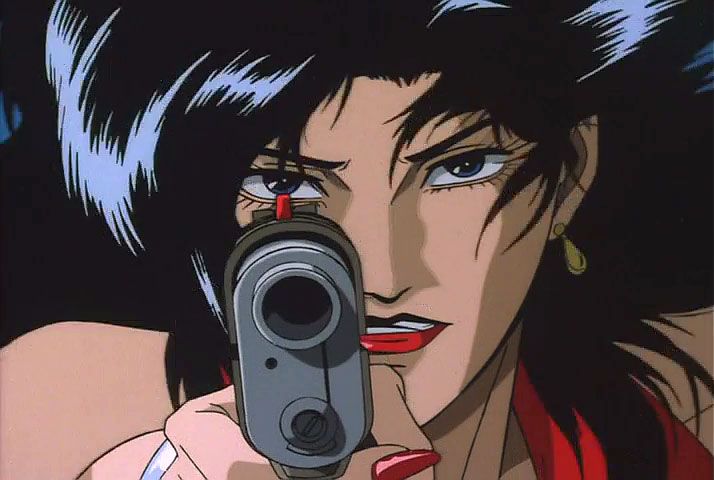
Were you given style guidelines about what kind of dub Manga wanted?
Not really, I was allowed a very free hand. The producer at Manga was Laurence Guinness. Guinness said that really I could do whatever I liked, whatever seemed to work. The one thing, and I know I get picked up on this, is all the swearing, but I was told: “Go for it, make it as edgy as you can.” So that was why I went down that avenue. It sort of became the Manga house style as well, to a degree.
Did you think about, or discuss, a target audience? For example, were you thinking these titles were aimed at 18-year olds, or fans of particular kinds of movies?
No, not really. I don’t remember anything like that at the time. It was just that I remember (being told to) make the dialogue pretty spiky, so I guess we just knew it was going to pick up an 18 certificate. For a lot of the cartoons I worked on, the actual visuals were never going to get anything other than an 18 certificate – stuff like Violence Jack.
What do you remember about adapting Cyber City Oedo 808?
Apart from adapting the dialogue, the stories on all three episodes were pretty strong, I didn’t really have to do any work on them. It was all there. The enjoyment to me was the dialogue. The characters were a gift in terms of being tough guys. The opportunity to write some really snappy tough-guy dialogue was what I enjoyed so much about it, and that’s probably what I’m most pleased with. They came out really well.
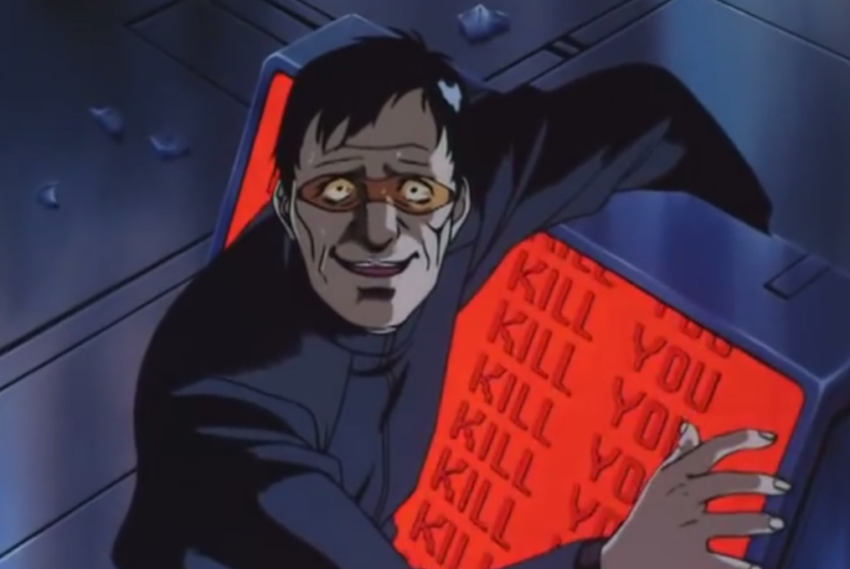
I enjoyed the dialogue that you gave to the robot character Varsus, who of course didn’t have any lip-flaps to match.
Thank you for saying so. I remember that in the literal translation, the humour kind of wasn’t there, but you could see the potential for it, because Varsus was working as a foil to Sengoku.
Apart from Cyber City, which titles did you find the most memorable or enjoyable to dub?
Cyber City was my absolute favourite of all of them. I did enjoy doing Angel Cop. I had to deviate from the original script quite a bit on that one – it’s very anti-Semitic in its original format, and obviously that wasn’t going to wash. I quite liked Goku: Midnight Eye, and for other reasons I liked doing Space Adventure Cobra, a much older anime. Again, that was one I altered quite substantially, simply because the literal script just made absolutely no sense to a Western audience.
Can you give an example?
The only thing that sticks in my mind is that the villain, to whom I gave the name Lord Necron, is called Crystal Boy in the original. For a villain, that didn’t really cut it.
Do you have many memories of adapting Violence Jack, a notorious title for its violence?
It was the most graphic of all the ones I came across. One of the things was getting voice-actors, especially females, who were broad-minded enough to deal with it, because it had an awful lot of rape and other ghastliness in it. You needed to be fairly unshockable. But having gone through all the ghastliness, I remember the censor pretty much trimmed all the ghastliness out!
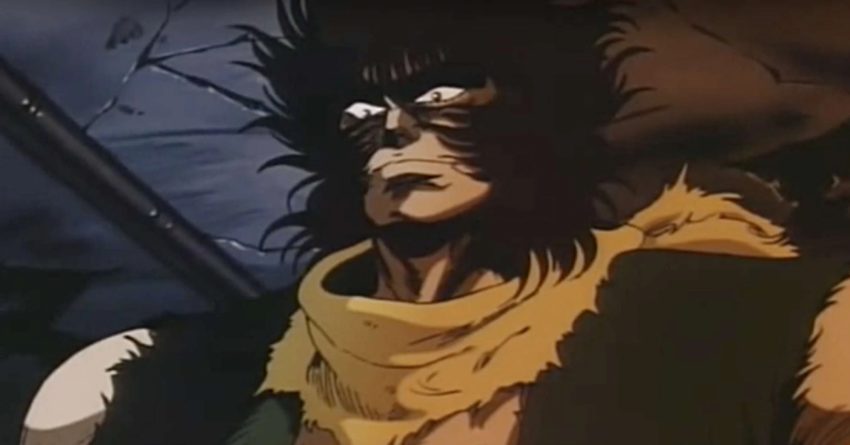
When you were actually adapting the anime scripts, were you working in an office?
Yes, I remember that very well. I had an office about the size of a toilet cubicle on the top floor of Worldwide Studios. It was absolutely microscopic. The way we used to do that – it’s not much different now – was to use a travelling band machine [also known as a rythmo band machine]. The video would come up on a monitor and you had a strip of 35-mill white spacing which would go across a kind of desk in front of you. The way we used to do it is that you could mark in pencil at a given sprocket point where a character started talking – I’d mark out the length of the line (of dialogue), and I’d mark out all the mouth flaps, just with a little dot, where they occurred on the film.
I’d have a look at it and think: is that a fricative or a plosive, what am I looking at? Then I’d have to construct a line that joined the dots. At first it was an incredibly laborious, long-winded process, but I remember I got very good at it. You’d see your little line of dots and think, that’s going to be: “Get the fuck out of here.” Or whatever. It was remarkable – it would fit, and you’d see it played back in the theatre and it was in sync like it was the original.
[Beyond Manga’s releases, Wolskel also worked on the dubs for the Italian live-action films The Knights of the Quest, featuring Edward Furlong, and Gunslinger’s Revenge, with David Bowie; he also was involved in dubbing a character played by Gerard Depardieu in Disney’s live-action 102 Dalmatians.]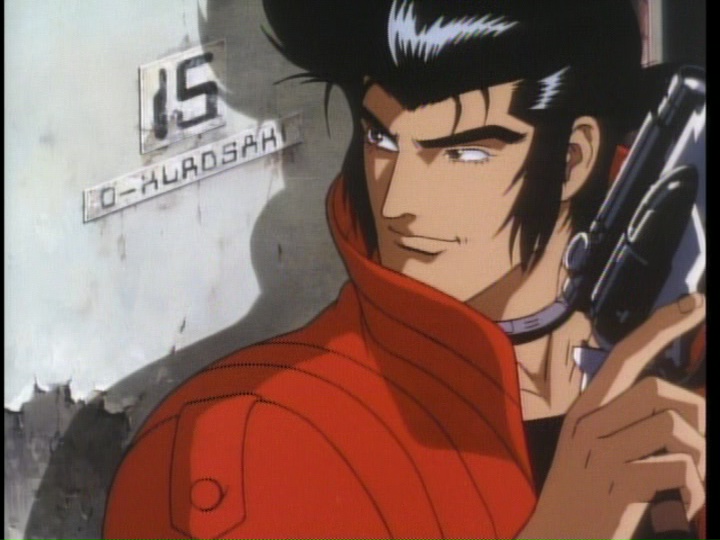
Which Manga staff were you mainly communicating with?
At Manga, it was Laurence Guinness, who I dealt with pretty well exclusively. Otherwise my interactions were with the production staff at Worldwide, such as Richard King, the mixer, and Jill Wilmot, who did the voice casting.
I’d also talk to George Roubicek quite a lot. Although we were working on different things, we’d confer endlessly about how we’d approach them, what we’d do. The styles were slightly different; I tended to get the more in-your-face titles! Mainly it was about the technical aspect of the writing, to get the thing to look in sync, how we’d approach that. George was a lot more experienced than me on writing dubs.
Were you involved in the casting with Jill Willmot?
Yes, we’d go through the script, and she’d ask “What kind of a person is Sengoku?” for example, and I’d say: “He’s a tough guy ex-con.” And we’d do that for all the characters. She’d have a list of guys who could fit the bill. A lot of voice-talent is very flexible, they can do different voices. Ideally, you’d try to get someone in who could cover three or four parts, which kept the fees down a bit!
Were you also involved in directing some Manga dubs?
Yes, absolutely. When I started, Michael Bakewell was the director on all the Manga stuff, but he became unwell sometime into my time there. I remember him saying: “Do you want to do it?” Which ones I did is hard to remember – I remember doing Violence Jack. Worldwide had a couple of dubbing theatres down in the basement and we would do all the voice recording in the smaller studio. The finished tracks would be mixed in the main theatre.
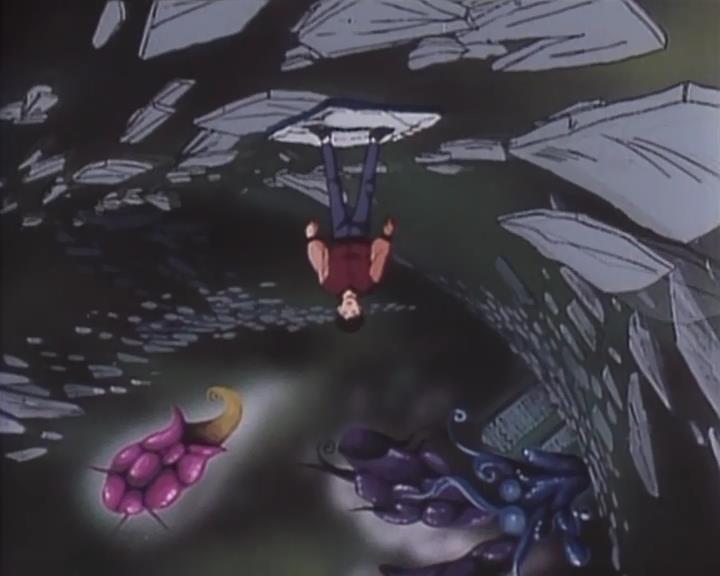
How long would it take to do a dub?
It depended a bit on the film, because some of them were much more dialogue-heavy than others. Cyber City was something in the middle, I seem to remember. There was another thing called Dark Myth where I think the characters waffled on forever, a huge recording job. [From the entry in the Clements and McCarthy Anime Encyclopedia: “For the dub, Manga Entertainment does its best, but John Wolskel’s rewrite still has to stumble through lines like, ‘The head of the Kikuchi clan is always called Kikuchi-hiko. It is a very old name. It is recorded as Kukuchi-ku of the country of Kuna, in the Gishiwajin-den in the third century AD.’”] On the other hand, Violence Jack and Devilman were very light on dialogue. You could do Devilman in a day, easily. It would take a day of recording and then it would be a day to mix it.
Something like Cyber City would probably take a couple of days, typically. You’d get half your actors in on the one day, and you’d run through all the parts that you’d allocated to them. People would usually play more than one part, unless, perhaps, they were the main character.
When and how did your time with Manga come to an end?
The work at Worldwide went through to something like the end of 1996. It sorted of petered out… The problem with producing something in London’s West End was the rates were very expensive, and I think the Manga bubble was deflating a little towards the end of that period.
They were looking for somewhere cheaper to get the job done and they moved the dubbing operations out to Cardiff, to Cardiff TV. John Cross was in charge, there. I’m pretty sure I was writing the scripts at home at this time, and went out to Cardiff to direct them. I think I did Psychic Wars in Cardiff and Sword for Truth and something about vampires [likely to have been Vampire Wars]. Generally, they were done using pretty much the same actors, so they’d all go and have an overnight in a Cardiff bed-and-breakfast.
That fizzled out around 1997 because, I think, of the costings. And these days, it’s all done over in the States.
Cyber City Oedo 808 is released in the UK by Anime Limited.
Angzoei
May 4, 2025 3:38 pm
Hey Andrew and John, want to thank you guys for the great interview! Before reading this I was always curious about how the process worked back in Manga's dubbing days. For me, Angel Cop continues to be one of me (and my wife's) favorite anime. While many people like to bash it for the "spiked" dialog, the actual voice acting and direction is confident, with the story being coherent and rewatchable. I just watched through the Violence Jack series and loved them just the same, like Angel Cop, great talented cast and enjoyable dialog, even despite the grim setting. I don't think these anime gets the recognition they deserve.. If this is justice then I'm a banana. I appreciate this article very much, without it I most definitely would not have heard the details present here. I definitely am envious of the job though, it was a special time in dubbing with varied OVA's and stories, supported by voice actors and actresses that have no true modern comparison, in my opinion. Thanks and kudos for the article and the endless laughs and intrigue.